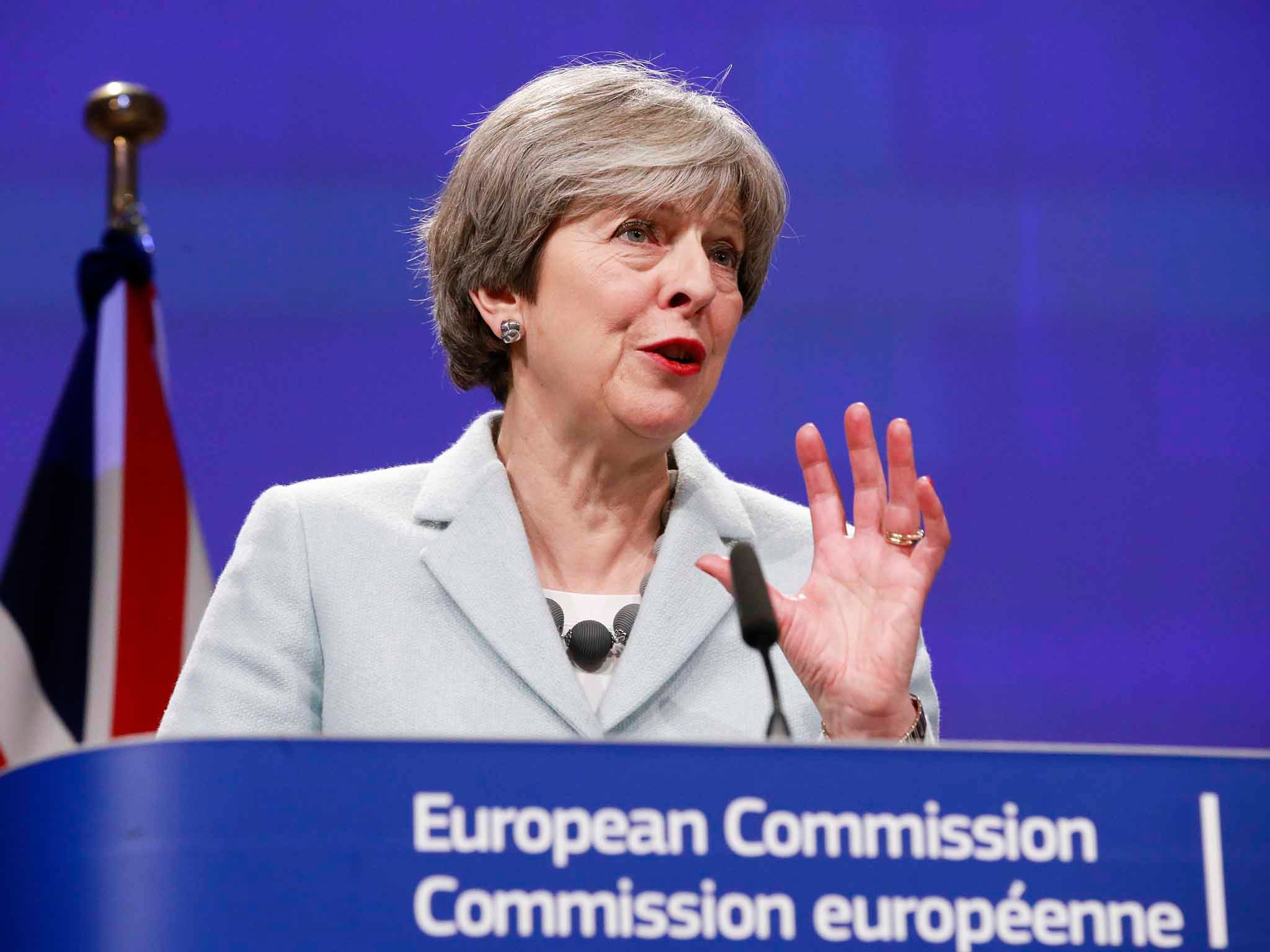Theresa May’s relief at securing a deal today won't last long – trade talks will be much harder
In Brussels the thinking is that the UK will have to accept a ‘level playing field’ with the EU on regulation in order to get the type of deal wanted by Theresa May


Theresa May has again proved more resilient than she looks today by securing a deal allowing the EU negotiations to move on to a long-term trade agreement.
She lives to fight another day; failure could have ended her premiership. But her huge relief will be short-lived. Many more obstacles lie on the road ahead. Persuading the EU that “sufficient progress” has been made on the UK’s divorce payment, citizens’ rights and Ireland was the relatively easy bit. We are only at the end of the beginning.
Even in May’s hour of victory there were ominous signs of trouble ahead in stage two, which will be kickstarted at the EU leaders’ summit next week. It will make stage one look like a walk in the park. The Democratic Unionist Party, which humiliated May on Monday by blocking a deal, made clear it will make further demands in stage two because it is not fully satisfied about the Irish border. It will be a constant thorn in the Government’s side.
But May’s biggest problem will be hardline Brexiteers in her own party. They won’t like the “full alignment” of regulations in Northern Ireland and Ireland, even if that is only a fallback plan if there is no free-trade agreement and would mean common goals on standards rather than precisely the same rules. Tory Brexiteers will find it hard to stomach a continuing role for the European Court of Justice (ECJ) in upholding the rights of EU citizens in the UK, even though this would only happen if UK judges refer cases to it and will last for eight years, not indefinitely as the EU originally wanted. May should never have made a rash promise to end ECJ jurisdiction – a last-minute addition to her 2016 Tory conference speech to play to the Eurosceptic gallery. Now she has made a sensible compromise.
The ECJ is a red line for many Tory Brexiteers; numbers matter because the change will require legislation. Many hardliners, also uneasy about a divorce payment of up to £40bn, would prefer “no deal” even if that meant World Trade Organisation tariffs. They might try to vote down the deal, putting May in the uncomfortable and dangerous position of relying on Jeremy Corbyn.
Many more messy compromises will be needed for May to achieve the “deep and special partnership” she wants. It is still a big “if”. Officially, ministers hope a comprehensive free-trade agreement will be signed before the UK leaves the EU in March 2019. Privately, they admit it will be so hellishly complicated that getting a “heads of agreement” will be as good as it gets by then.
The biggest Tory battle of all will be over the long-term UK-EU relationship – crucially, how much access Britain has to the EU market. Incredibly, 18 months after the referendum, the Cabinet has not even discussed this “end state”. May has now been forced to concede a debate soon. It will be hard to broker a compromise between pragmatists led by Philip Hammond, who rightly want to stick close to EU regulations until trade deals with other countries are in the bag, and ideologues led by Boris Johnson and Michael Gove, who want a clean break with the EU even if the UK takes a short-term economic hit. One possible route is to diverge from the EU in the industries of the future such as artificial intelligence.
As in stage one, the Government will enter the trade talks with unrealistic expectations. The EU will not give the UK the same or better terms as now outside the single market and customs union. May has rejected a Norway-style deal inside the single market but wants a more ambitious one than the EU-Canada agreement, which mainly covers goods, because services account for 80 per cent of the UK economy.
However, in Brussels the thinking is that a UK deal would be less ambitious than Canada’s – unless the UK accepts a “level playing field” with the EU on regulation. The EU does not want the UK to get the competitive advantage it seeks; the EU-UK economies are much more closely linked than the EU and Canada. This is the Irish border problem writ large – and could be the stumbling block to a trade deal. If the UK diverged in one area, the EU could respond with punitive tariffs in another.
The trade deal will go into fine detail, making fudges like “regulatory alignment” hard to sustain. Then there’s the tricky question of whether the UK would mirror new EU rules in future.
The hardline Brexiteers will not like any of this. But they are not May’s only headache. Next Wednesday, about 20 pro-European Tories threaten to defeat the Government on the EU (Withdrawal) Bill by joining forces with opposition parties to secure a “meaningful vote” on the eventual agreement. May wants a take-it-or-leave-it choice between her deal and “no deal”.
The Tory rebels will come under enormous pressure not to spoil May’s party on the eve of the EU summit. A proper vote is vital; it could allow the trade talks to be extended and even pave the way for a referendum on the deal if public opinion shifts over the next year. The pro-EU Tories have wilted under such pressure in the past. They should stand firm this time, and remember that Brexit was supposed to be about Parliament taking back control.

Join our commenting forum
Join thought-provoking conversations, follow other Independent readers and see their replies